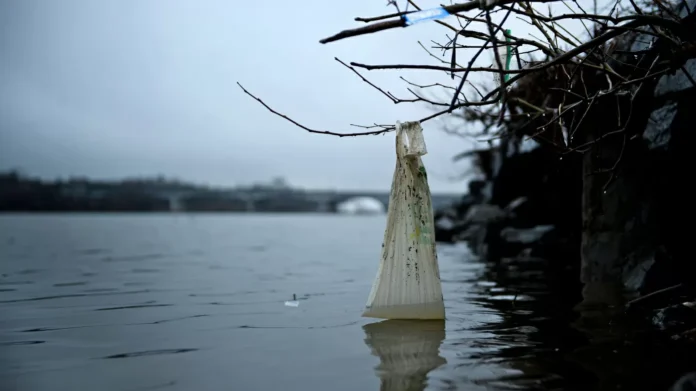Policies Banning Plastic Bags Lead to Significant Decline in Litter on U.S. Shorelines
Plastic pollution has become a major environmental concern in recent years, with millions of tons of plastic waste ending up in our oceans and waterways. Among the biggest culprits are single-use plastic bags, which have been found to be a major contributor to marine debris. However, a new study has found that policies banning or imposing fees on plastic bags have resulted in a significant decrease in plastic litter along U.S. shorelines.
The study, conducted by researchers at the University of Georgia, analyzed data from cleanups of coastal litter across the United States. They found that in places where state or local governments have implemented regulations to reduce the use of plastic bags, there has been a 25 percent to 47 percent decline in the proportion of bags found in total coastal litter cleanups.
This is a significant finding, as plastic bags are one of the most commonly found items in beach cleanups. These lightweight bags are easily carried by wind and water, ending up in our oceans and harming marine life. They can also take hundreds of years to decompose, posing a long-term threat to our environment.
The study looked at data from 1994 to 2018, covering 1,714 cleanups across 11 states. During this time, 11 states and hundreds of local governments have implemented policies to reduce the use of plastic bags, including bans, fees, and taxes. The results showed that these policies have been effective in reducing the amount of plastic litter on our shorelines.
One of the most successful policies has been the outright ban on plastic bags. States like California, Hawaii, and New York have seen a significant decrease in plastic bag litter since implementing a ban. In fact, California saw a 72 percent reduction in plastic bag litter on its beaches just one year after the ban was implemented in 2016.
Other states, like Maine and Vermont, have imposed fees on plastic bags, which has also led to a decline in their use. In Maine, where a 5-cent fee was implemented in 2015, there has been a 50 percent reduction in plastic bag litter on its beaches. Similarly, Vermont saw a 78 percent decrease in plastic bag litter after implementing a 10-cent fee in 2019.
These policies not only reduce the amount of plastic litter on our shorelines but also have a positive impact on our oceans and marine life. Plastic bags are often mistaken for food by marine animals, leading to ingestion and entanglement, which can be fatal. By reducing the amount of plastic bags in our environment, we are protecting our oceans and the creatures that call it home.
Moreover, these policies also have a positive effect on our economy. The study found that local governments save money on cleanup costs when there are fewer plastic bags in their communities. This is because plastic bags are difficult and costly to clean up, and the burden often falls on local governments and taxpayers. By reducing the use of plastic bags, these policies are not only helping the environment but also saving money for communities.
The success of these policies also highlights the importance of local and state-level action in addressing environmental issues. While there have been efforts at the federal level to regulate plastic bags, progress has been slow. However, state and local governments have taken the lead in implementing policies that have a direct impact on reducing plastic pollution. This shows that change can happen at a grassroots level, and it is up to us to take action in our own communities.
In conclusion, the study’s findings are a clear indication that policies banning or imposing fees on plastic bags are effective in reducing plastic litter on U.S. shorelines. These policies not only have a positive impact on our environment and marine life but also save money for local governments. It is time for more states and local governments to take action and implement similar policies to protect our oceans and create a cleaner, healthier environment for future generations. Let us all do our part in reducing plastic pollution and creating a more sustainable world.

